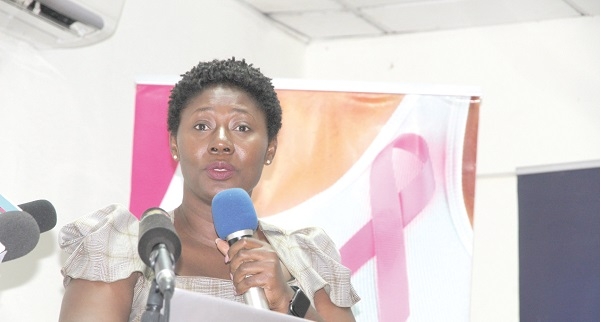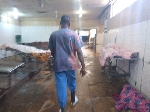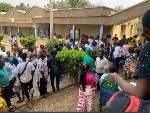50% of Cancer patients abandon treatment due to financial constraints – Dr. Naa Adorkor Aryeetey
 Dr. Naa Adorkor Aryeetey
Dr. Naa Adorkor Aryeetey
Dr. Naa Adorkor Aryeetey, a Senior Specialist in Oncology and Radiotherapy, has revealed that half of the patients diagnosed with cancer fail to return for further treatment, primarily due to financial difficulties and the psychological burden of living with the disease.
Speaking in an interview with Kwesi Kyei Darkwa (KKD) on CTV’s Master of the Game on Wednesday, November 27, 2024, Dr. Aryeetey highlighted the pressing challenges faced by cancer patients.
She explained that the financial strain of treatment and the trauma associated with a cancer diagnosis often deter many from seeking the care they need.
Defining cancer, Dr. Aryeetey described it as “the abnormal growth of cells that have the ability to spread to other parts of the body.”
She noted that there are two main types of cancer: benign, which is non-cancerous, and malignant, which is cancerous and can affect any part of the body.
She pointed out that the most common cancers affecting women are breast and cervical cancer, while prostate cancer is prevalent among men.
Dr. Aryeetey emphasized the importance of regular self-examinations and early detection, urging people to pay attention to unusual growths, swellings, or wounds that do not heal.
“Everyone must examine their body regularly for any changes,” she advised.
She expressed concern over the lack of organized cancer screening programmes in Ghana, which has led to doctors relying on opportunistic screening during unrelated medical visits.
Calling for a robust response to cancer care, Dr. Aryeetey urged the government to adhere to the World Health Organization’s guideline of allocating 15% of the Gross Domestic Product (GDP) to healthcare. “Healthcare is expensive worldwide, and Ghana must prioritize funding to improve access and outcomes,” she stressed.
Dr. Aryeetey’s remarks serve as a call to action for enhanced cancer awareness, early detection, and increased investment in healthcare to support patients and reduce the burden of the disease.
Source: Classfmonline.com/Cecil Mensah
Trending News

Korle Bu Teaching Hospital suspends acceptance of fresh bodies
09:55
My exposés about wrongdoings have saved this country millions of dollars - Ablakwa
14:18
WAEC calls for cooperation from WASSCE candidates over withheld results
16:47
Victor Asare Bampoe appointed CEO of NHIA
04:01
Ghana ‘unhappy’ with US exit from Paris Agreement – Ablakwa calls for renewed commitment
14:09
Murtala Muhammed advocates use of diplomacy to secure Ghana’s climate funding
14:53
Malik Basintale Introduces new Deputy CEOs to head office staff
03:55
Embassies must openly help and protect Ghanaians abroad - Ablakwa
14:02
PBC Managing Director alleges 'armed robbery' at official residence
14:24
SSNIT scandal: Gloria Nkrumah’s absenteeism exposes deep-rooted irregularities
03:41




